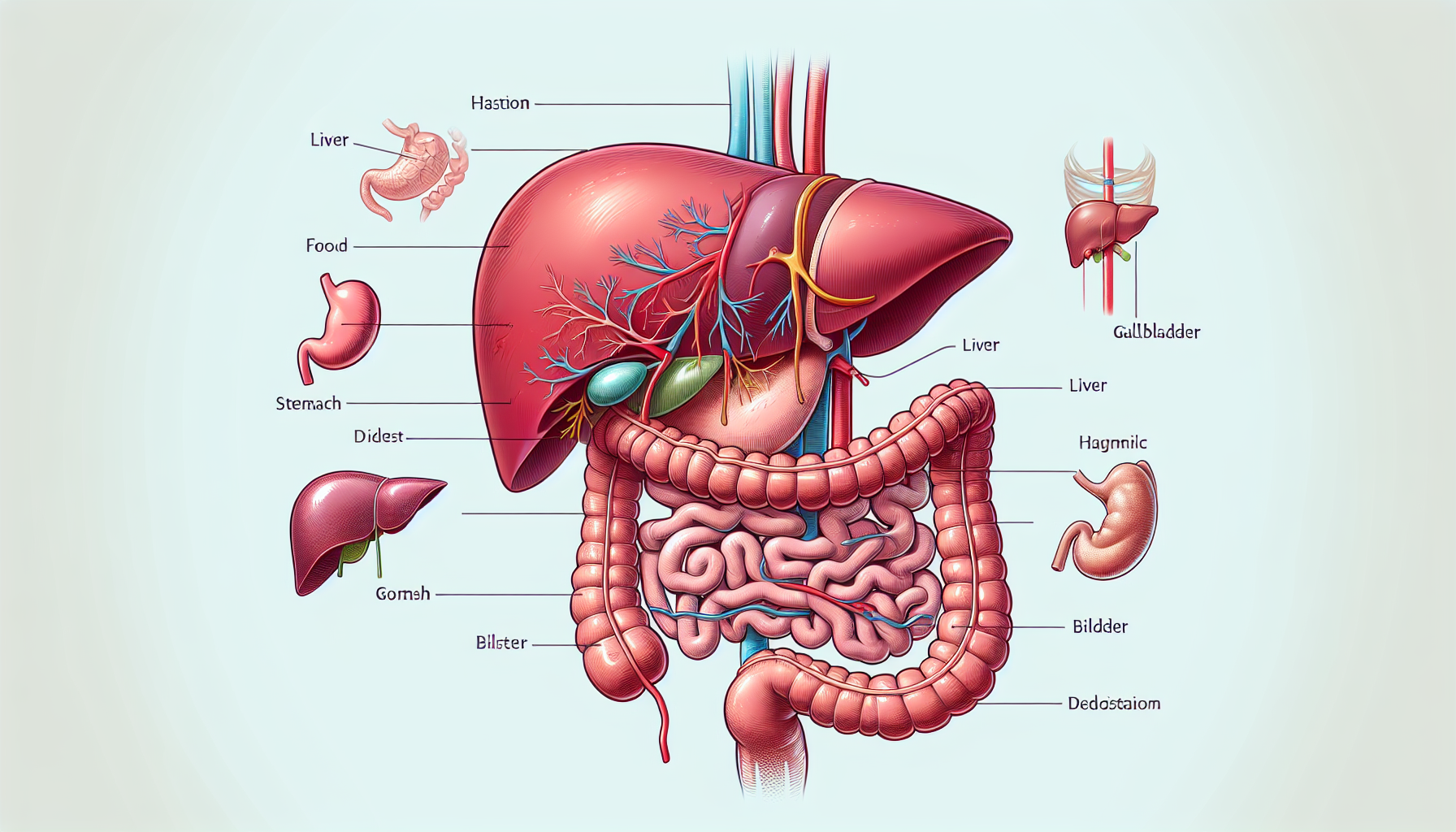The liver is a powerhouse of detoxification, playing a pivotal role in filtering out toxins and supporting overall digestive health. A well-functioning liver ensures that nutrients from food are processed efficiently, harmful substances are removed, and a balance is maintained within the body’s metabolic processes. In this comprehensive guide, we’ll explore actionable strategies to enhance liver detoxification, which can lead to improved digestive health and overall well-being.
Understanding Liver Detoxification
Before diving into the strategies, it’s crucial to understand that liver detoxification occurs in two primary phases. Phase I involves the conversion of toxic substances into less harmful ones, while Phase II focuses on making these substances water-soluble so they can be excreted from the body. Both phases require a variety of nutrients and enzymes to function effectively.
Nutritional Support for Liver Health
Nutrition plays a key role in supporting liver detoxification. Consuming a diet rich in fruits, vegetables, lean proteins, and whole grains provides the liver with the necessary nutrients to perform its detoxification processes. Additionally, specific foods like garlic, beets, and leafy greens are known to enhance liver function.
To further understand the interplay between diet and organ health, the article on Digestive Health offers valuable insights into how dietary choices can influence your digestive system’s performance, including the liver.
Hydration and Detoxification
Staying adequately hydrated is essential for liver health. Water helps to flush toxins from the body and supports the kidneys in eliminating waste. Experts recommend drinking at least eight glasses of water a day to ensure optimal detoxification.
Herbal Supplements
Certain herbs are believed to support liver health. Milk thistle, for example, contains silymarin, a compound that may protect liver cells from damage and improve detoxification. Dandelion root and turmeric are also popular for their potential liver-supporting properties.
For those with specific digestive health concerns, it may be helpful to explore Nutritional Strategies for Managing Gastritis, which can complement liver detoxification efforts by addressing the inflammation in the stomach lining.
Exercise and Liver Health
Physical activity can boost liver function by enhancing metabolism and circulation. Regular exercise helps in maintaining a healthy weight, which is crucial since obesity can lead to fatty liver disease, impeding the liver’s ability to detoxify.
Stress Management
Chronic stress can negatively impact liver function by increasing the body’s production of stress hormones, which can interfere with detoxification processes. Techniques such as deep breathing, meditation, and yoga can help manage stress levels.
For more on the effects of emotional well-being on gut health, consider reading about The Impact of Emotional Stress on Gut Function, which provides insights into the complex relationship between the mind and digestive system.
Avoiding Toxins
Reducing exposure to environmental toxins is another key strategy. This includes limiting alcohol consumption, avoiding smoking, and reducing the use of chemicals in household cleaning and personal care products.
For further guidance on eliminating toxins from the body, the article on Best Practices for Eliminating Digestive Toxins offers valuable tips and methods.
Sleep and Liver Health
Quality sleep is crucial for liver health. During sleep, the liver performs many of its detoxification processes more efficiently. Adults should aim for 7-9 hours of sleep per night to support these functions.
External Resources to Support Liver Detoxification
For those interested in delving deeper into the specifics of liver detoxification, here are two invaluable resources:
- The American Liver Foundation provides a wealth of information on liver health, offering detailed insights into how lifestyle choices can impact liver function.
- Research published in the Journal of Nutrition and Metabolism highlights the role of specific nutrients in the detoxification process, emphasizing the importance of diet in maintaining liver health.
Conclusion
Enhancing liver detoxification is a multifaceted approach that involves nutrition, hydration, herbal supplementation, exercise, stress management, toxin avoidance, and adequate sleep. By implementing these strategies, you can support your liver in its vital role within the digestive system and contribute positively to your overall health.
Remember, while these strategies are beneficial, they should complement, not replace, the advice of healthcare professionals. Always consult with a doctor or a qualified health practitioner before making significant changes to your diet or lifestyle, especially if you have existing health conditions.



